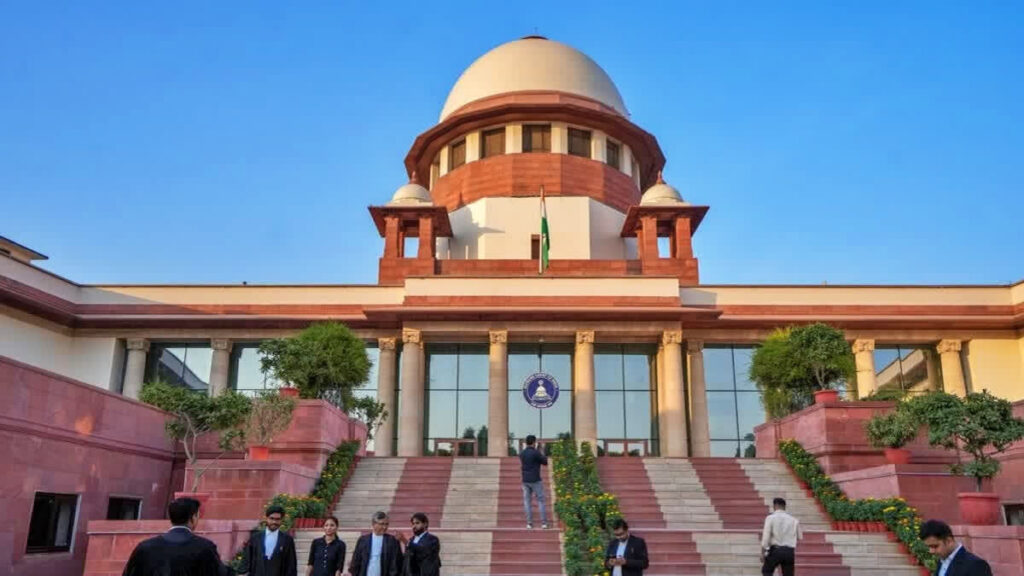Shreya Gupta
On March 26, 2025, the Supreme Court of India stayed the controversial order of the Allahabad High Court. The High Court had ruled that certain acts, such as grabbing the breasts of a minor girl, breaking the string of her pyjama, and attempting to drag her beneath a culvert, would not amount to an attempt to rape.
The Allahabad High Court had earlier observed that these acts would prima facie fall under the category of ‘Aggravated Sexual Assault’ as per the Protection of Children from Sexual Offences (POCSO) Act, which carries a lesser punishment. Taking Suo motu cognizance of the matter following public outrage, the Supreme Court bench comprising Justices B.R. Gavai and A.G. Masih strongly disagreed with the Allahabad High Court’s interpretation and described the order as “shocking.”
The Supreme Court further remarked that certain observations made by the Allahabad High Court in their judgment, particularly in paragraphs 21, 24, and 26, reflected a complete lack of sensitivity on the part of the judge who delivered the verdict. The Apex Court also highlighted that the judgment was not given impulsively but was delivered after being reserved for nearly four months, which indicated that it was a well-considered verdict.
Despite this, the Supreme Court found that the observations in the ruling were “totally unknown to the tenets of law” and displayed a “total insensitivity and inhuman approach.” Due to this, the Supreme Court found it necessary to out a stay on the observations and issued notices to the Union of India, the State of Uttar Pradesh, and the other parties involved in the High Court proceedings.
During the hearing, Solicitor General of India Tushar Mehta appeared and denounced the High Court’s ruling, calling it “shocking.” The Supreme Court’s intervention came after a letter was sent by Senior Advocate Shobha Gupta on behalf of the NGO ‘We the Women of India,’ drawing attention to the issues in the High Court’s judgment.
The prosecution’s case was that the accused individuals, Pawan and Akash, had grabbed the breasts of an 11-year-old victim, and one of them, namely Akash, had broken the string of her pyjama and attempted to drag her beneath a culvert. The Trial Court had found these acts to constitute an attempt to commit rape or penetrative sexual assault under the POCSO Act and had accordingly invoked Section 376 of the Indian Penal Code (IPC) along with Section 18 of the POCSO Act, which deals with an attempt to commit an offence. Based on this classification, the Trial Court issued a summoning order against the accused under these sections.
However, the Allahabad High Court took a different view and directed that the accused be tried under Section 354-B IPC, which pertains to assault or the use of criminal force with the intent to disrobe, in addition to Sections 9 and 10 of the POCSO Act, which relate to aggravated sexual assault. This decision by the High Court led to widespread controversy and public criticism.
The Allahabad High Court justified its ruling by making a legal distinction between ‘preparation’ and ‘attempt.’ It observed that the allegations made against the accused and the facts of the case did not constitute an attempt to commit rape. According to the Allahabad High Court, for an offence to be classified as an attempt to rape, the prosecution must establish that the accused had progressed beyond the stage of preparation.
The Court further explained that the difference between preparation and an actual attempt to commit an offence lies in the degree of determination shown by the accused. This ruling was delivered by Justice Ram Manohar Narayan Mishra while partly allowing the criminal revision plea filed by the three accused.
It should be noted that the Supreme Court bench of Justices Bela M. Trivedi and PB Varale had dismissed an Article 32 writ petition challenging the order on ground of locus standi recently. However, despite this previous rejection, the present Suo motu action taken by the Supreme Court ultimately resulted in the staying of the High Court’s order, reflecting the Apex Court’s strong disapproval of the lower court’s interpretation of the law.
Case: IN RE: ORDER DATED 17.03.2025 PASSED BY THE HIGH COURT OF JUDICATURE AT ALLAHABAD IN CRIMINAL REVISION NO. 1449/2024 AND ANCILLARY ISSUES
Case Number: SMW(Crl) No. 1/2025
Bench: Justices B.R. Gavai and Justice AG Masih
Instagram: Click here.
LinkedIn: Click here.
For Collaboration and Business: info.desikaanoon@gmail.com

